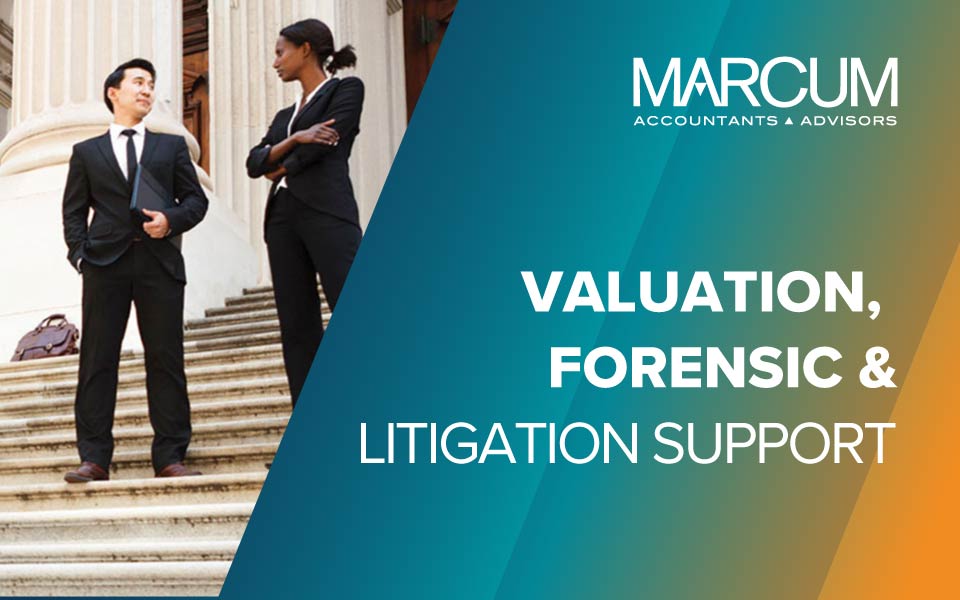Background Checks: The First Line of Defense in Fraud Prevention
By Frank Suponcic, Partner, Valuation, Forensic & Litigation Services
According to the American Institute of Certified Fraud Examiners 2016 Report to the Nations, employers lose five percent of their gross sales to fraud. The report goes on to reveal that median fraud losses approximate $150,000 and that it takes 18 months to discover that a trusted employee is stealing from you. Some studies indicate that 75 percent of employees steal once, while 50 percent steal frequently. One-third of all bankruptcies are estimated to be the result of employee fraud. And you are doing what?
While many of today’s employees are emboldened to at minimum “test” stealing from your business, businesses and organizations must be more proactive than ever to protect their cash and other assets.
The best way to prevent fraud is to stop the problem before it starts.
The first step any business or nonprofit organization can take to prevent embezzlement is to make sure that individuals with a questionable past are never hired in the first place.
It is the employer’s responsibility to perform adequate due diligence on its employment candidates, especially when it comes to those who will have any access to cash receipts and disbursements.
Background checks are one of the most cost-effective and valuable tools to prevent those who have been charged or convicted of a financial crime from eyeing your business as their next target.
Anyone responsible for hiring at your company must act as the corporate personnel gatekeeper. Even when there is an urgent need to fill a job, your recruiters must remain on alert and never let their guard down because even the “nicest” of candidates can be a risk to the company.
Background check costs vary based on the depth of the search. In the scheme of things, that’s a small price to pay for some peace of mind.
The more advanced the position is in the business, the more in-depth the background search. For example, I would dig deeper for a CEO, CFO or controller than an accounting clerk or receptionist. However, over the years, we have investigated embezzlement cases of individuals in all of these positions.
Candidates should be advised at the time of application that complete background checks will be performed. Those with questionable pasts will typically not waste the time applying if they know that a prospective employer will learn about unfavorable events by conducting a background check. This tactic would also save the employer the potential cost of performing a background check as well as valuable interview time.
Aside from employment verifications, a background check will inform the prospective employer about:
- Criminal offenses, including anything that involves theft
- Driving records
- Professional licenses, certifications and educational background
- Income tax liens
- Bankruptcy
- Judgements, liens and foreclosures
- Any litigation
- Businesses they may own or otherwise have a financial interest in
- Evidence of narcotic use and violence
Statistics reveal that most embezzlers are “first-time” offenders (from a criminal conviction perspective). Many just haven’t been caught; others may have been caught stealing, but the prior employers chose not to prosecute them, so there is no searchable trail.
Dishonest job candidates may also have access to creative internet tools that enable them to provide the prospective employer with fraudulent documents to dupe them into being hired.
A background check could reveal that the candidate is not personally financially responsible. If they cannot handle their own financial matters, will they be capable of managing those involving your business?
Background checks should always be performed prior to hiring, but many businesses become complacent with their trusted employees. I recommend conducting random checks during the course of employment. There are times when unknown issues come to light that would serve as a “red flag” to management. At the time of hiring, employees should acknowledge in writing that the employer reserves the right to conduct random background checks during the course of employment. Please consult your employment legal counsel for specific guidance.
A common mistake some employers make is in failing to perform background checks on temporary employees and on-site contractors who may have access to assets, inventory, or sensitive and proprietary information.
Some candidates lie on their resumes and supporting documentation about their employment history, incarceration, education, certifications, capabilities and other qualifications. It is up to the employer to discover these omissions and intentional misstatements. There is no better tool than a thorough background check to protect your company, employees and customers. It’s simple, inexpensive and the wise choice to make.
For more information on fraud prevention in the workplace, download our e-book, Fraud Prevention Measures. Questions? Contact Frank Suponcic, Partner, Valuation, Forensic & Litigation Services>.




















